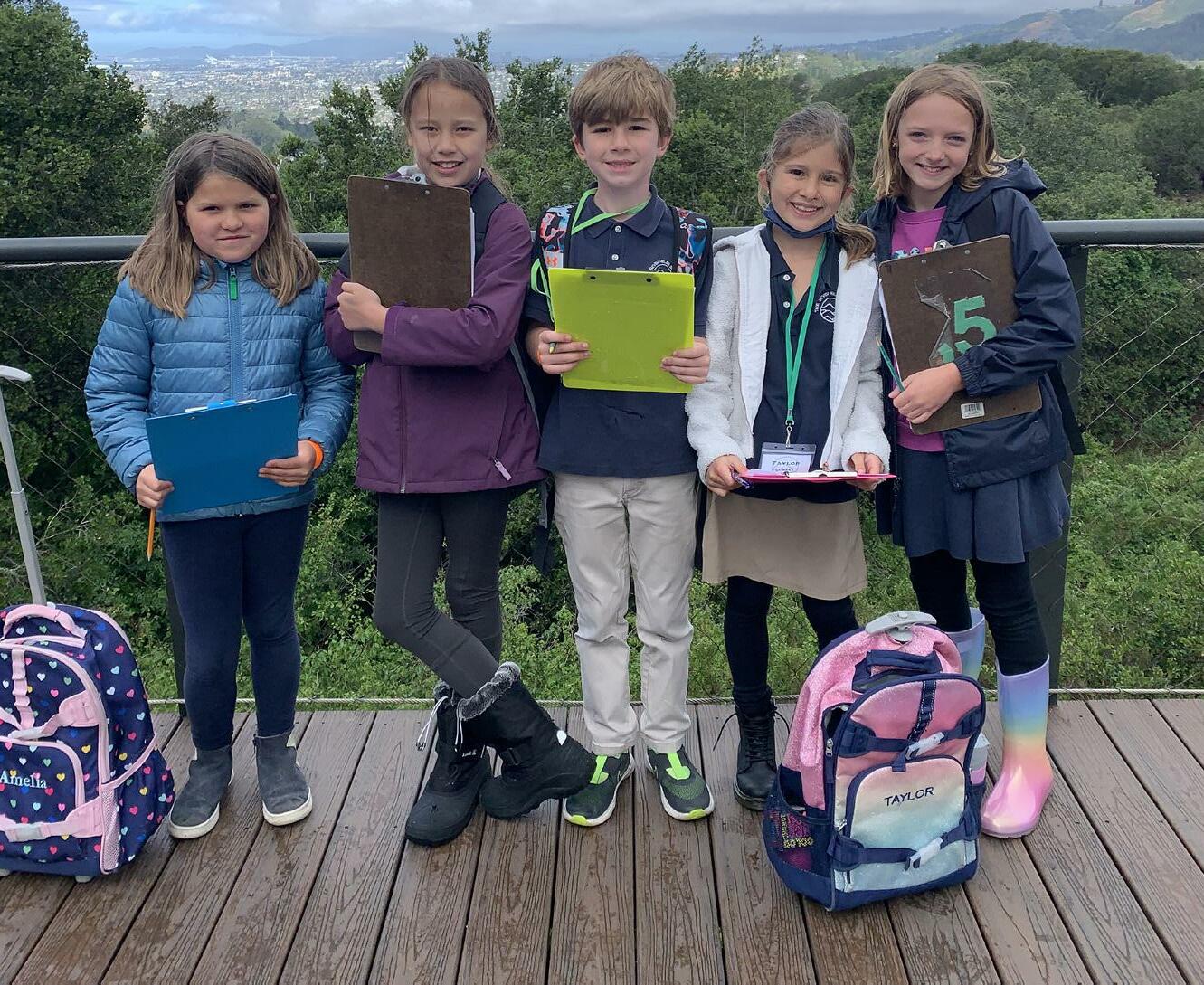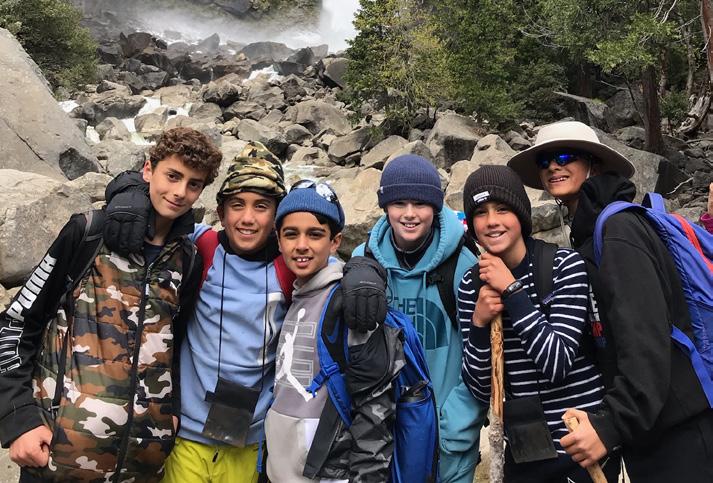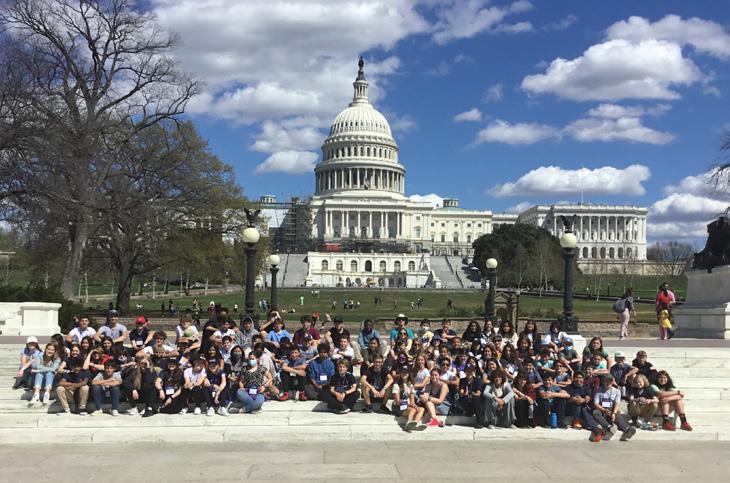
3 minute read
Focus on Students
At the faculty and staff end-of-year “closing circle” when Kathleen McNamara asked the group to name a high point from the school year, the overwhelming response was taking learning outside the classroom and back into the world. As Seven Hills was able to reintroduce touchstones of our program that were on pause during the pandemic, the return of field trips and overnight trips stood out as integral experiences for out-of-the-box teaching and deep learning. Seven Hills has a long history of experiential education, with a curriculum that revolves around seeing, listening, and feeling while connecting what is happening at school to the real world. Across all grade levels, these unique opportunities outside
In Rainbow and Red Barn, visual and handson learning through observation and discovery began by exploring beyond the ECE gates. During their campus walkabouts, students engaged their curiosity by observing the mysteries of the environment, collecting acorns, and preparing dirt for seeds. They visited the chicken coop and worm bin and were introduced— in a developmentally appropriate way— to the principles of environmental stewardship. These hands-on experiences reinforced concepts they were learning in the classroom while providing an opportunity to practice their vocabulary for senses and colors. In Kindergarten-3rd grade, local field trips enhanced classroom learning. A 1st grade engineering design study on sand and sand castles culminated in a much-anticipated trip to Baker Beach in San Francisco where students worked as a team to design, model, analyze, and construct a sand castle through trial and error. In 3rd grade, an animal research study with the library that included writing animal books and building habitat dioramas culminated in a trip to the Oakland Zoo, where students studied their chosen animal up close.
the classroom allow students to build and develop their independence, self-awareness, and environmental stewardship. From using our campus as a laboratory to learn big things and small things, to Middle Schoolers traveling across the country and globe, Seven Hills students broaden their understanding of the world around them.
In 4th grade, students graduated to a onenight overnight trip, bringing their outdoor learning to a new level. With the traditional Balclutha overnight ship experience not open to student groups last year, Seven Hills developed a new partnership with Sierra Outdoor School. Students visited Gold Rush country outside of Sonora, a relevant extension of 4th grade’s study of Native American history and California’s gold-rich lands. As students visited historic sites and roleplayed a day in the life of a miner— cooking, carrying out daily chores, panning for gold—they developed historical empathy and learned about how Native Americans were impacted by the Gold Rush.
2021-22 Overnight Travels
4th Grade: Sonora 5th Grade: Yosemite 6th Grade: Nevada City 7th Grade: Santa Monica
Mountains and
Washington, D.C. 8th Grade: Outside
Yosemite National Park and Washington, D.C.


Fifth through 8th graders experienced various extended trips that are often remembered as highlights of the Seven Hills journey and give students an opportunity to engage with nature and history up close. Outdoor education is the focus of the 5th and 6th grade trips, and our 7th and 8th grade trips include longer-distance domestic travel (Washington, D.C.), and in most years, an international trip. Due to COVID, international travel was on hold for several years, but we look forward to it resuming in 2022-23! While the experience of traveling with teachers and friends is a highlight on its own, there is also scope and sequence to develop deep, personal learning and to broaden students’ understanding of themes such as personal responsibility, situational and cultural awareness, healthy risks (“challenge by choice”), and leaving things better off than they found them. On the journey from Rainbow to 8th grade, students learn to become stewards and citizens of their diverse campus, neighborhood, country, and world—connecting big ideas and developing intellectual curiosity both in and out of school.






